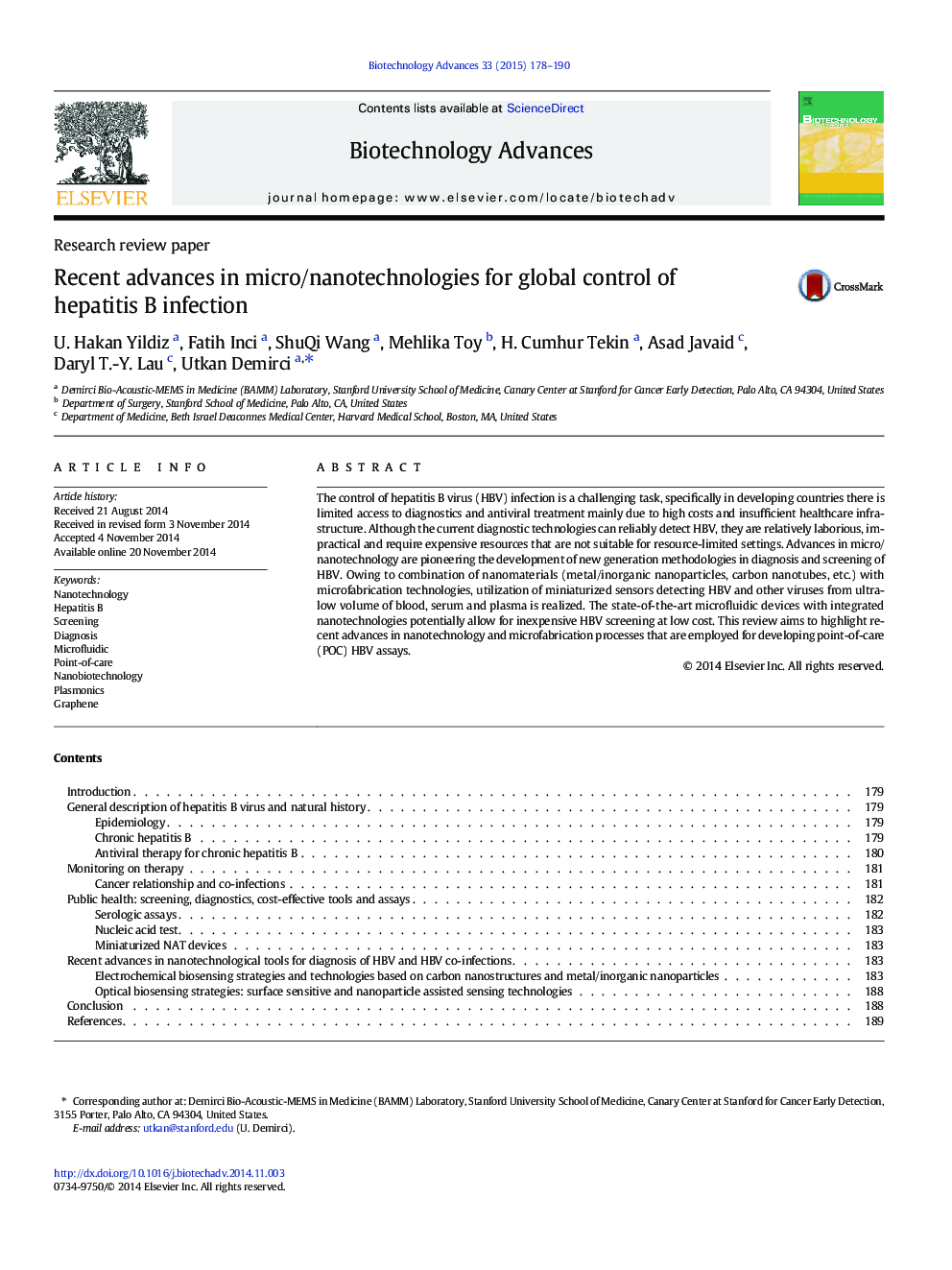| Article ID | Journal | Published Year | Pages | File Type |
|---|---|---|---|---|
| 10231490 | Biotechnology Advances | 2015 | 13 Pages |
Abstract
The control of hepatitis B virus (HBV) infection is a challenging task, specifically in developing countries there is limited access to diagnostics and antiviral treatment mainly due to high costs and insufficient healthcare infrastructure. Although the current diagnostic technologies can reliably detect HBV, they are relatively laborious, impractical and require expensive resources that are not suitable for resource-limited settings. Advances in micro/nanotechnology are pioneering the development of new generation methodologies in diagnosis and screening of HBV. Owing to combination of nanomaterials (metal/inorganic nanoparticles, carbon nanotubes, etc.) with microfabrication technologies, utilization of miniaturized sensors detecting HBV and other viruses from ultra-low volume of blood, serum and plasma is realized. The state-of-the-art microfluidic devices with integrated nanotechnologies potentially allow for inexpensive HBV screening at low cost. This review aims to highlight recent advances in nanotechnology and microfabrication processes that are employed for developing point-of-care (POC) HBV assays.
Keywords
Related Topics
Physical Sciences and Engineering
Chemical Engineering
Bioengineering
Authors
U. Hakan Yildiz, Fatih Inci, ShuQi Wang, Mehlika Toy, H. Cumhur Tekin, Asad Javaid, Daryl T.-Y. Lau, Utkan Demirci,
